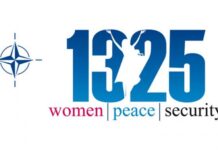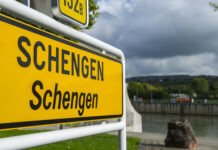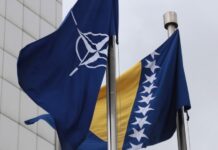Seminars in Mostar and Trebinje
{gallery}newsletters/6/4/1/{/gallery} On June 30, representatives from the BiH Ministry of Foreign Affairs in conjunction with the Royal Norwegian Embassy and the Atlantic Initiative organized a one-day seminar in Mostar to discuss the prospects of Bosnia and Herzegovina joining NATO. The seminar was entitled, “NATO Security Development and Defence Challenges of Europe and Beyond.”
The seminar was geared towards raising awareness about what membership in NATO would mean for Bosnians and addressing the particular concerns of smaller nations joining the large security alliance. The same seminar was held in Trebinje on July 1.
Speakers at the seminar included Norwegian Ambassador Jan Braathu, Advisor to the President of the Republika Serpska Duško Glodić, University of Sarajevo Professor and Atlantic Initiative member Mirza Smajić, Representative of the Institute for Defense Studies-Oslo Dr. Torunn Haaland, Ambassador Fuad Šabeta, and Colonel John Olsen of the Norwegian armed forces.
Topics discussed during the seminar included the continued development of NATO as an effective security alliance, the experience of small nations within NATO, the resolution of disagreements within the Alliance, and developing strategic concerns.
NATO and Small Countries
{gallery}newsletters/6/4/2/{/gallery}A major theme of the seminar, the representatives from Norway shared their own experiences of being a small country working within the NATO framework.
“NATO is an institutionalized insurance policy,” remarked Norwegian Ambassador Jan Braathu, “for threats present and future.” Yet, NATO is not an organization that dominates and dictates to its smaller members what they should do: “NATO offers small countries the opportunity for influence.” The inclusive and transparent approach that NATO has adopted for decision making affords member countries the necessary forum to help shape their own security environment rather than being wholly at the mercy of larger forces beyond their control.
Dr. Torunn Haaland presented on the pros and cons of NATO membership. NATO, she argued, is more than just a military organization. It is an intergovernmental/political organization, one that is founded upon the principle of consensus and “an alliance of equals.” Importantly, NATO is a transatlantic tie, linking shared values and building institutionalized cooperation. Out of this political forum and institution of cooperation, NATO’s military assets can be wielded to better affect the stability of the North Atlantic security environment.
Dr. Haaland proceeded to explain the growing pains experienced by NATO in the wake of 9/11. She enumerated three debates occurring internal to the organization, but argued that NATO remains an effective and relevant security alliance. Presently, NATO member states are discussing the implications of traditional, narrowly-defined collective security arrangements versus an expanded globalist interpretation of NATO’s mission environment that would project NATO influence worldwide.
Secondly, there is a tension that exists amongst member states in their preferences for low-intensity stability/peacekeeping missions versus high-intensity combat missions. The types of missions in which NATO chooses to involve itself, influences the costs member states must bear to invest in high-tech weaponry required by high-intensity combat missions.
Finally, NATO members continue to discuss the role of NATO worldwide and the necessity of acquiring a UN Security Council mandate to operate beyond the boundaries of the NATO area. Inherently, this is a hotly contested issue, and like many of the issues surrounding Bosnia and Herzegovina’s accession to NATO, several members of the audience expressed concern that the interests of BiH would be subsumed beneath those of the larger NATO member states. During the question and answer period, these concerns came to the forefront of discussion. Many of the questions came from the younger members of the audience.
It was to these concerns that the speakers from Norway were particularly qualified to apply their own experiences within the NATO alliance. Ambassador Braathu addressed these concerns by saying that although militarily, some members of the alliance are more influential than others, politically NATO is a forum where members can be brutally honest and speak on the level of equals. He said that personally he has witnessed the major powers change their positions based upon negotiations within NATO. This, he argues gives countries like Norway, and hopefully Bosnia and Herzegovina, “an inordinate amount of influence.” What matters for small countries, he continues, is that you express yourself as an equal member. “If you behave like a client, you will be treated like a client. If you behave like an equal, you will be treated like an equal.”
BiH Accession to NATO
Ambassador Braathu articulated perhaps the most concise argument for NATO’s relevance, and specifically, Bosnia and Herzegovina’s accession to NATO. “The security of one state cannot be achieved through the insecurity of another state…For too long, Bosnia and Herzegovina has imported security; now is the time to contribute.” BiH joining NATO empowers it to contribute to its own security environment versus being simply at the mercy of its environment.
Michael MORELAND
Photos by Peter GORMAN







